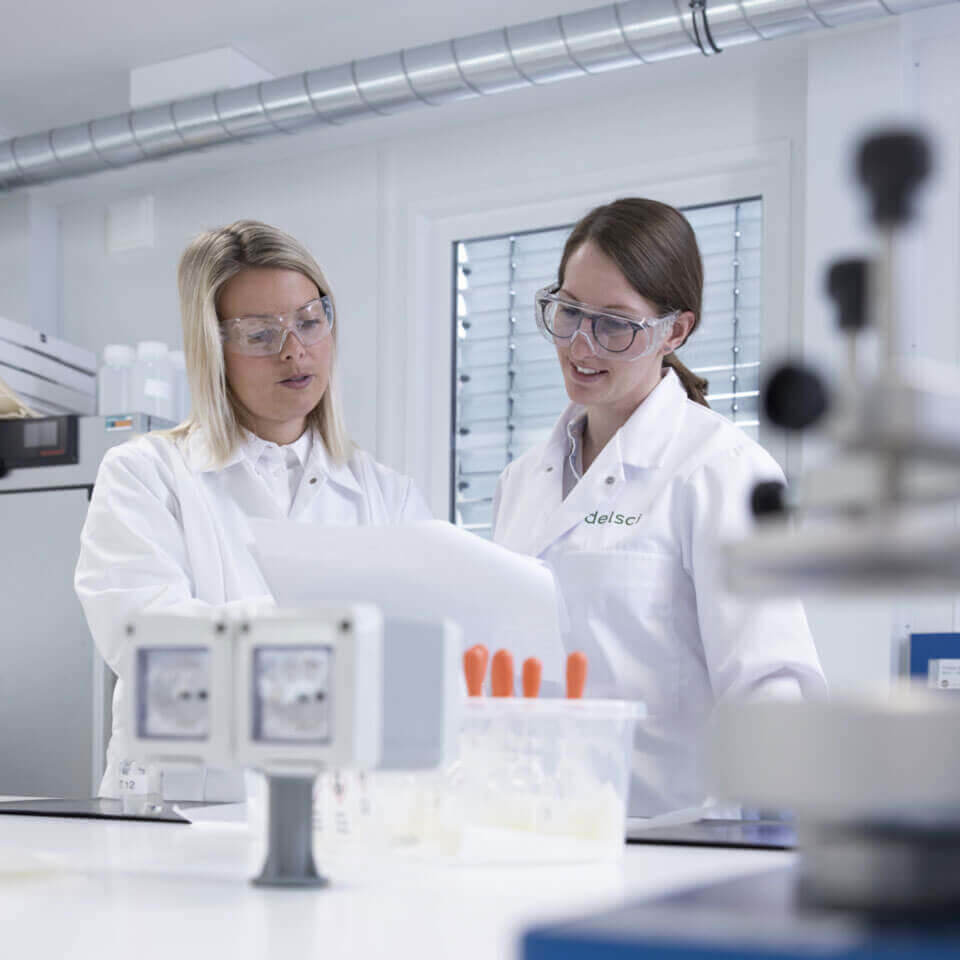Technological Advantages
The time for a packaging revolution is now!
Plastics are versatile, high performing and cheap to produce. This has led to clothes, furniture, cars, electronic devices, cosmetics and even streets being made from plastic – and notably, most of today's packaging as well. Did you know that close to 40% of produced plastic turns into packaging, and is used only once before being discarded?
The good news? There is a more sustainable packaging material that can replace plastic in an increasing number of applications - paper! We are continuously screening the flexible packaging market for applications with a high plastic-to-paper conversion probability.
Benefits of paper packaging compared to plastic packaging
It is becoming increasingly clear that the use of plastic packaging is harming our environment and creating long-lasting damage to ecosystems. As a result, companies have a responsibility to reduce their dependency on plastic packaging and switch instead to more sustainable alternatives such as paper packaging. By doing so, they can promote environmental sustainability, reduce their carbon footprint, and enhance their brand reputation among consumers who are increasingly demanding eco-friendly packaging.
Paper packaging is biodegradable, recyclable, and made from renewable resources, making it a more sustainable choice. Moreover, paper packaging offers aesthetic and safety benefits, making it a preferable option for companies seeking to enhance their brand value. In conclusion, companies that switch to paper packaging can create a positive impact on the environment, improve their brand reputation, and respond to the growing consumer demand for eco-friendly products.
Several governments around the world have implemented plastic bans in order to reduce plastic pollution and promote environmental sustainability.
Renewable resource
Paper is made from wood pulp, which is a renewable resource that can be replenished through sustainable forest management practices. Plastic, on the other hand, is made from non-renewable fossil fuels.
Biodegradability
Paper is a biodegradable material that can break down naturally in the environment without causing harm. Plastic, on the other hand, can take thousands of years to break down and can cause harm to the environment and wildlife.
Recyclability
Paper is a highly recyclable material that can be reused to create new products. In contrast, many types of plastic are difficult to recycle and can end up in landfills or oceans.
Plastic is under increasing pressure from governments
The circularity of packaging is becoming even more urgent. Driven by a shift in public attitudes towards waste and recycling, policymakers have begun implementing ambitious targets and regulations. Creating a circular economy for packaging is an objective that many countries, companies, and customers actively strive towards. Increasing regulations have the principal aim of limiting the negative impact of packaging on both the environment and human health.
- The European Union is demanding a reduction in the use of resources and significantly higher material recycling quotas as part of the EU Circular Economy Package. The European Commission aims to ensure that all packaging in the EU is reusable or recyclable in an economically viable way by 2030, in line with the EU Green Deal and the EU Circular Economy Action Plan.
- Recycling targets will be a major part of the California Plastic Waste and Labelling Bills stating that all disposable packaging and “food service ware” must be either fully recyclable or compostable by 2032.
- One of the most ambitious plastic packaging directives out there, the Australian Packaging Covenant Organisation states that 100% of all packaging will be either reusable, recyclable, or compostable by 2025..
Paper please!
Consumers are concerned about the negative impact of plastic on the environment.
People are increasingly looking for products with eco-friendly packaging that promote sustainability, reduce waste, and minimize harm to the environment.
They are becoming more environmentally conscious and are looking for products with eco-friendly packaging. By reducing the amount of plastic in their packaging, companies can appeal to this growing market segment.
paper packaging fits seamlessly into the circular economy model
When it comes to packaging, functional paper is the solution we are passionate about. Fiber-based packaging is both a sustainable and circular solution. It plays a significant role in reducing landfill waste.
Every paper waste incinerated only emits the amount of CO2 that it previously absorbed. Now consider that paper has recycling rates of over 80% in Europe and recycled fibers can be reused multiple times. So if we only take cellulose materials from sustainably managed forests, we are already talking about a carbon-neutral material. We are now talking about tremendous sustainability potential!
What can paper do?
In recent years, paper has undergone significant advancements as a packaging material, driven by increased demand for sustainable and eco-friendly packaging options. While paper cannot currently replace plastic in all applications, it's gaining traction every day thanks to creativity, ingenuity, and advancements in technology. Advancements in paper packaging technology have made paper a more versatile, sustainable, and attractive packaging option for a wide range of products.
Let's give your packaging superpowers!
The paper we need depends on the type of food our customers need to package. This is why we’re focused on building close partnerships – to ensure we understand and deliver packaging that meets your exact needs. If you’re interested in how switching to paper packaging could benefit your business, or if you need to replace your current plastic packaging design with a smart green solution, let’s discuss how we can transform your business. We practice open innovation, so we also invite any potential partners like suppliers who share our vision to drop us a line. We believe in the power of collaboration – let’s team up and give paper superpowers!
